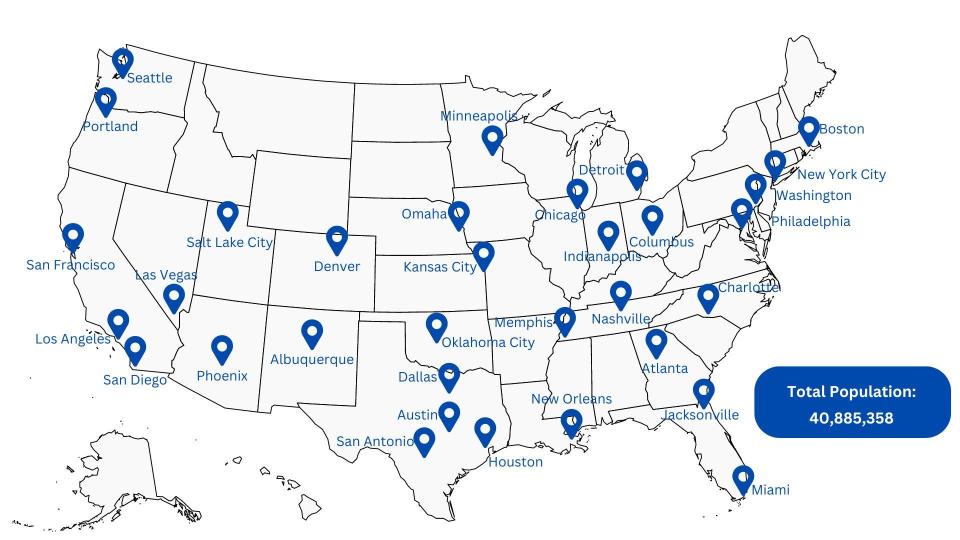As my retirement last year eases into a stage of semi-retirement or what some have labeled as “micro-retirement,” I have had eight months of reflection on my nearly four decades of doing research. After a few months of total abstention, I could no longer keep myself away from the higher education field that I so loved. I slowly eased myself back in by…
The higher education landscape is arguably the toughest it has been in a generation, marked by economic instability, demographic decline, and the constant imperative for greater efficiency. The 2026 Landscape of Higher Education Report confirms this volatile reality: beginning in 2026, many institutions will face a sustained decline in traditional-aged undergraduates. Enrollment growth is now…
When I make presentations about AI, I am most often asked, “What can I do now to ensure that AI doesn’t take my job?” And, that’s a challenge to answer. We do not know just how, and how quickly, AI will roll out. However, a Gallup Poll released last week showed nearly one-quarter of American…
As we look at Artificial Intelligence in teaching and learning, we must look beyond facts, figures and formulas to ensure that the skill of perceiving and managing feelings, emotions and personalization are engaged in the process. Looking back on my lifelong history of learning experiences, the ones that I would rank as most effective and…
Beyond Degrees: How Credential Innovation is Closing the Gap for 42 Million Learners
A Movement, Not Just a Community Convergence is emerging as the place where the credential innovation community for higher ed comes together. But more than a community, it’s a movement. Not a movement to make degrees less valuable, let alone obsolete. Rather, it’s a movement to complement degrees by meeting the needs of those for…
UPCEA Announces Selection of Peer Learning Leaders to Drive Innovation in Skills-Based Credentialing
Six individuals selected for grant-funded work helping advance University-to-Business credential innovation strategies WASHINGTON (October 23, 2024) – UPCEA, the online and professional education association, is thrilled to announce the selection of six individuals to be Peer Learning Leaders for the association’s grant-funded “Expanding Institutional Capacity for Employer Engagement in Credential Innovation” project. The project will…
Half of Higher Ed Institutions Now Use AI for Outcomes Tracking, But Most Lag in Implementing Comprehensive Learner Records
Survey conducted by Instructure and UPCEA explores the intersection of AI and credentialing in Higher Education SALT LAKE CITY — October 22, 2024 — Instructure, the leading learning ecosystem and UPCEA, the online and professional education association, announced the results of a survey on whether institutions are leveraging AI to improve learner outcomes and manage…
Best Colleges Ranking – 2025 (WalletHub)
Insights from Ray Schroeder, Senior Fellow at UPCEA – The Online and Professional Education Association and Professor Emeritus of Communication – University of Illinois Springfield Are Ivy League and other “name- brand” schools worth the high sticker price? Wise consumers of higher education should begin with the outcome. What career or job is your desired…
The tagline for Convergence, Credential Innovation in Higher Education, raises two important questions: First, what kind of credentials are we talking about? Is the scope of credentials unlimited, blue sky, or confined to incremental changes on the margins of the status quo? And second, who is leading that innovation, and what do they need to…
We are pleased to share the foreword by UPCEA CEO Bob Hansen from the newly released Chief Online Learning Officers’ Guidebook: A Framework for Strategy and Practice in Higher Education. The guidebook, now available from Routledge in paperback, hardback, and eBook formats, provides a comprehensive framework for today’s online learning leaders. Learn more and purchase…
The student journey has changed — and expectations are rising. Students today are moving faster, arriving more informed, and expecting experiences that feel responsive and personalized. Research behaviors are shifting, and AI is increasingly shaping how prospective students discover and evaluate programs. The path to enrollment is becoming more complex and more personalized, and students…
Introduction Higher education is at a crossroads, marked by declining public trust, diminishing enrollments, substantial budget cuts, and increased scrutiny on post-college outcomes. Recent research from UPCEA underscores growing skepticism about the value of traditional degrees, driving institutions and learners alike to explore innovative educational pathways and revenue models (UPCEA, 2025). To address these challenges…

